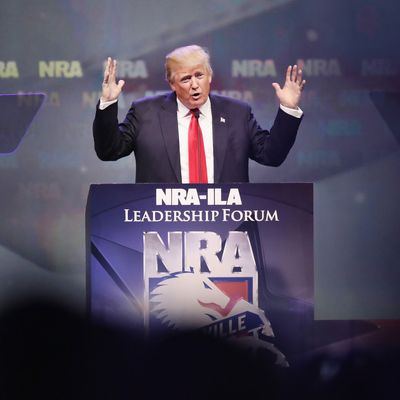
As I noted in a piece on why Trump’s win surprised so many people, many observers (from all points of view) placed a mental thumb-on-the-scales on Clinton’s behalf because of her superior “ground game.” After all, she had not only a well-funded traditional get-out-the-vote operation based on abundant field offices and an army of paid and volunteer canvassers, but a state-of-the-art data-driven voter-targeting guidance system run by veterans of the Obama campaign. What did Trump have? Monster rallies plus whatever the state GOP happened to be doing here or there. Didn’t look like much of a contest, especially with all the early voting signs appearing to favor Clinton.
So did Trump simply overwhelm all those Clinton advantages via the excitement of his base and/or resistance of potential Clinton voters based on things they didn’t like about her? Or was something else going on?
Theda Skocpol of Harvard, in a response at TPM to a post-election analysis from John Judis, notes one not-so-secret weapon for Trump that has largely been ignored: the very real “ground game” that pro-Trump “issues groups” conducted on his behalf:
You say Trump had no organization. True enough for his own campaign. HRC had the typical well-funded presidential-moment machine, an excellent one. We on the center left seem to treat these presidential machines as organization, and they are, but they are not as effective as longstanding natural organized networks. To get some of those working for him, Trump made deals to get the NRA , Christian right and GOP federated operations on his side. They have real, extensive reach into nonmetro areas. But off the coasts, Democrats no longer have such reach beyond what a presidential campaign does on its own. Public sector and private sector unions have been decimated. And most of the rest of the Democratic-aligned infrastructure is metro based and focused.
Skocpol is making two separate arguments here, both of them compelling. The first is that in terms of get-out-the-vote resources, Trump benefited from non-campaign, non-party efforts that are much larger and better-funded than anything the left can deploy. The second is that the conservative infrastructure for turning out voters is deeply embedded in communities — especially outside metro areas — year in and year out, in a way that no campaign-based effort can imitate.
I’d add a third point to Skocpol’s: All the talk of Republican factions being uncertain about supporting Trump did not matter much in the end. If, for example, a Koch-network-funded voter-mobilization initiative in Michigan or Pennsylvania didn’t explicitly work for Trump’s election, who cares? The voters it mobilized voted for him anyway. The Christian Right turned out its vote, and ambiguity over Trump among some conservative evangelical leaders did not matter at all in terms of how the faithful voted.
The flip side of that Republican infrastructure in non-metro areas is its absence for Democrats, a handicap few presidential candidates can easily overcome. Here’s Skocpol again:
HRC’s narrow loss was grounded in this absent non-metro infrastructure – and Dem Party losses in elections overall even more so. Obama overcame that deficit. But he is a once in half century figure.
As Skocpol also makes clear, this is a problem that cannot be overcome overnight with some “populist” message that Clinton allegedly lacked: It is a matter of long-term investments in uncongenial territory that progressives have been loath to make. And it’s going to take time for them to dig themselves out of this deficit.






























